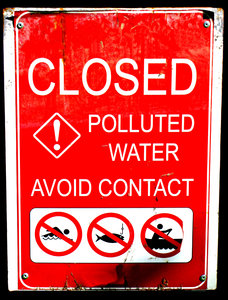A few years ago I watched a youtube video especially dedicated to Earth Day. The man in the video started a gas blower and set it down, then he started a gas weed eater and set it down, then he started a push mower (remember all these things are still running) then a ride-on mower, then his car, and his truck. At the bottom of the screen flashed the words “Happy Earth Day.” The creator of the video was making an obvious statement. He did not support the ideals of Earth Day, and obviously didn’t accept the concept of climate change. This offended my sensibilities. I remember driving an old car with no air conditioner on I-240 in Memphis, Tennessee, reading signs that said, “Smog Warning: Leave Your Windows Up.”
As Unitarian Universalists, we articulate very clearly our ideals through our principles, specifically the 7th principle:
Respect for the interdependent web of all existence of which we are a part.
This principle reminds us that that we are part of this world and this world is a part of us. We should, therefore, care for the world so it can care for us. However, even before coming to the Unitarian Universalist Church, taking care of the planet was a spiritual issue for me. Every year around Earth Day when I had the chance to preach a sermon I showed pictures of the great Pacific garbage patch, smog warnings, and oil-covered ducks. Of course, I didn’t start there–I started with the Hebrew Bible.
God blessed them and said to them, “Be fruitful and increase in number; fill the earth and subdue it. Rule over the fish in the sea and the birds in the sky and over every living creature that moves on the ground.”-Genesis 1:28
Coming near the end of the creation narrative, this statement defines the roll of man in the new creation. Upon a simple read, it doesn’t say much, the only thing that really ever stuck out to me is the word “subdue.” The word in Hebrew is generally used during war–in referencing the control of something hostile. In this case, there is nothing hostile working against Adam and Eve. They are working in congruence. Quite simply put, “you are in charge.” The next word that sticks out is “rule” (or to have dominion over). This is not being used in a violent context. In essence, humanity is set up as steward of creation. There is nothing violent here. Humanity is never asked to fight against creation but to care for it. In fact, it is one of the oldest commands in the Hebrew Bible. In this context, the world will be shaped by humans and it will reflect their own nature. Later, as we move through Genesis into Noah’s narrative, we find that reflection to be found wanting.
Some Unitarian Universalists, however, don’t really give much precedence to a biblical or Christian argument. We have been presented with scientific studies that inform our cultural milieu in regard to environmentally sound solutions and that is fine. However, I still think it is important to know. I think it is important because as we study the political landscape we often find that those who oppose earth friendly solutions are often aligned with the political/religious right, and in that context, it often means Christians. If we look upon the recent history of our planet, we clearly see that human beings, since their rise to power, have shaped this earth.
Even more importantly it creates a spiritual alignment that connects most religious belief systems; that is, we are connected (or maybe interconnected) spiritually to the world around us and all things dwelling above and below it. Spiritually, we are part of the whole, we are interdependent, which means we are individual and corporate at the same time. In fact, whether one believes they are created in God’s image or not, the responsibility to our home is the same. If in fact one believes this world was created “good,” wouldn’t that mean we should try to keep it that way? Sometimes I struggle working with people with that worldview as they ignored smog and pollution. They ignored species after species becoming extinct and the destruction of the forests necessary to provide us oxygen. I always struggled to understand how any person, religious or not, could look upon the earth we created and call it good.

